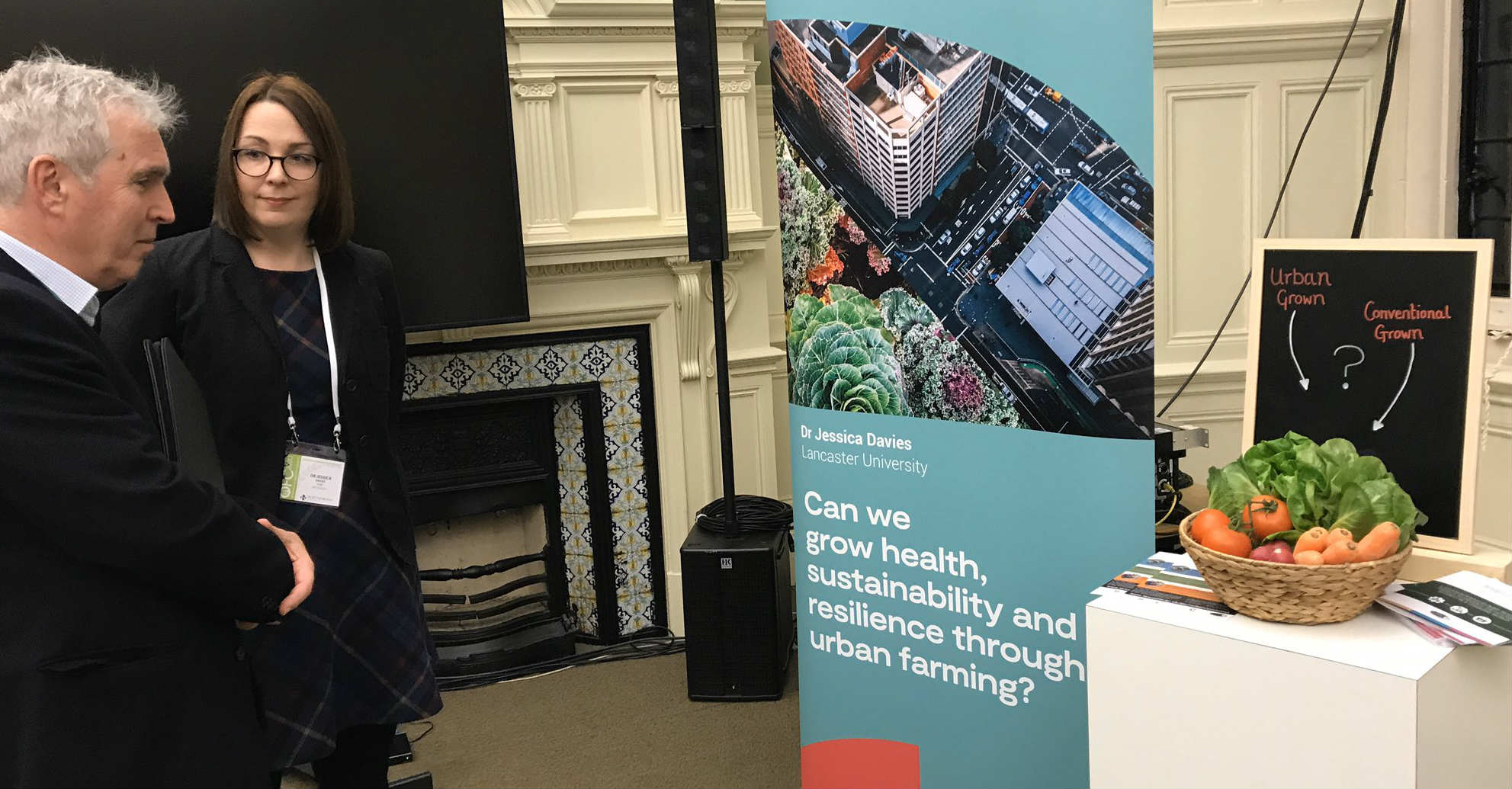Bringing urban agriculture into the mainstream

Lancaster University scientists have showcased their urban farming research at the prestigious Oxford Farming Conference.
Dr Jess Davies, Senior Lecturer in Sustainability at Lancaster Environment Centre and lead researcher on the Rurban Revolution project, was invited to talk about the issues surrounding growing more of our food in towns and cities as part of the UKRI’s Innovation Hub at the conference on January 7.
“In Rurban Revolution we are interested in how increasing the amount of food we grow in towns and cities could change our health, the health of our environment, and secure our access to fresh fruit and vegetables,” she said. “We need to produce more, healthier food with less land – urban farming is a big opportunity for this, but we need to know more. Improving this understanding is what we are working on with Rurban Revolution.
“It was great to be invited to the Oxford Farming Conference to talk about our research as part of the UKRI Innovation hub. We had interesting and productive conversations with farmers and people across the food and farming industry about the potential for urban agriculture in helping us move towards a sustainable healthier food system,” added Dr Davies.
“There was a lot of interest in what new indoor growing techniques and the rise in vertical farming might mean for the industry. But we also had conversations about the basics, and the opportunities that might come with sharing practice between established market horticulturalists and new urban growing movements”
The research is also about reconnection – our society is increasingly disconnected and polarized – particularly when it comes to food. The research team is interested in how increasing the presence of farming in our urban lives can reconnect people with nature, with food and connect our rural and urban communities and economies.
The Rurban Revolution project is a two year project, led by Dr Jess Davies at Lancaster University with colleagues at Cranfield University and University of Liverpool. It is funded through the Global Food Security’s ‘Resilience of the UK Food System Programme’, with support from the Biotechnology and Biological Sciences Research Council (BBSRC), Economic and Social Research Council (ESRC), Natural Environment Research Council (NERC) and The Scottish Government.


